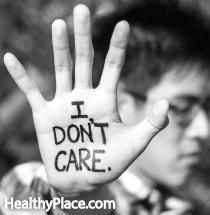How Impotence Affects Relationships
sexual problems
Impotence and the Partner
Impotence can be very taxing on a relationship. On the one hand, the man may feel that his "loss of manhood" is a subject that he must keep to himself and not share with his partner. He may withdraw emotionally and physically from his partner. The partner may react with feelings of insecurity, self-doubt and may blame him or herself for the sexual difficulties present in the relationship.
The Individual and Society
Society has a tremendous influence on how we view and conduct ourselves. We consider sex to be a very private and intimate act, yet knowledge of the "howtos" and of its pleasure has been communicated to us through word of mouth and through various media such as video and publications. Sex is infused in all cultures. A scent of perfume may arouse sexual feelings. Indeed, it is what we receive through sensory stimuli and fantasies that "turn us on" and in the case of a man, "makes him hard".
Men are pressured from their peers and society to "get it up" and "perform". Any sense that he is unable to do so challenges his sense of manhood and threatens his self-esteem. He may feel guilty that he can no longer perform his function as a man - a "performer" and creator of life - and he may feel that impotence is the first sign that age is creeping up on him.
Impotence and erection weakness is not only a problem for the man but is a problem for the relationship. For example, a man now challenged by his erection weakness may feel embarrassed and ashamed and lose his desire to perform. He may begin to deny his partner any emotional and physical attention and avoid situations where sexual encounters may occur. He may refuse to discuss his difficulties with anyone, especially with his partner. This lack of sexual intimacy between the couple can place great strain on the partner, particularly if the partner is a woman.
A woman may see her partner's erection weakness and absence as a sign that he no longer loves her, finds her attractive or desires her. Her need for understanding and reassurance is not being met and her loving feelings towards her partner are being replaced by feelings of anger, insecurity, self-doubt and even self-blame. Understanding what is happening and knowing that she can support and participate in treatment brings an enormous sense of relief to the partner.
Advice for the Couple
A man's "good piece" doesn't always work at the push of a button. Impotence is an issue that must be worked out between the couple with the full understanding that communication is the most essential step in achieving success towards treatment and recovery. Whereas the man must openly express his feelings and discuss his difficulties, the partner needs to offer sympathy and understanding and reassure that the difficulty is temporary and can be successfully treated. Communication alleviates and prevents any misunderstandings and feelings of unhappiness and isolation.
APA Reference
Staff, H.
(2009, January 5). How Impotence Affects Relationships, HealthyPlace. Retrieved
on 2026, January 14 from https://www.healthyplace.com/sex/psychology-of-sex/how-impotence-affects-relationships
 Eating disorders are consuming. They consume the individual in obsessive, negative thinking and behaviors and they consume the individual's relationships with family members, loved ones, and life. This is partially due to the effects of starvation in anorexia. When people are not adequately nourished, they think about food constantly, sometimes even dreaming about it. They also become depressed, isolated, and tired. They avoid relationships because they often feel others pressure them to eat, are physically depleted, and feel compelled to engage in eating disordered behaviors.
Eating disorders are consuming. They consume the individual in obsessive, negative thinking and behaviors and they consume the individual's relationships with family members, loved ones, and life. This is partially due to the effects of starvation in anorexia. When people are not adequately nourished, they think about food constantly, sometimes even dreaming about it. They also become depressed, isolated, and tired. They avoid relationships because they often feel others pressure them to eat, are physically depleted, and feel compelled to engage in eating disordered behaviors. Everyone experiences the symptoms of anxiety from time to time, caused by any number of things -- changes in our lifestyle, undue stress, tension. These symptoms often reflect a normal response to problems arising in our daily lives. In some cases, however, they may be the symptoms of a psychological or physical illness. The diagnosis of a serious medical problem is not always a simple process.
Everyone experiences the symptoms of anxiety from time to time, caused by any number of things -- changes in our lifestyle, undue stress, tension. These symptoms often reflect a normal response to problems arising in our daily lives. In some cases, however, they may be the symptoms of a psychological or physical illness. The diagnosis of a serious medical problem is not always a simple process. Jean, My Bipolar Story Short Bio of Jean. Born 1951. College graduate. Married twice. First time for ten years--two sons ages 23 and 21. Present marriage - eleven years--three sons, ages 10, 9, and 7.
Jean, My Bipolar Story Short Bio of Jean. Born 1951. College graduate. Married twice. First time for ten years--two sons ages 23 and 21. Present marriage - eleven years--three sons, ages 10, 9, and 7. What kind of people get OCD? Are they weak, mentally unstable, weird?
What kind of people get OCD? Are they weak, mentally unstable, weird?